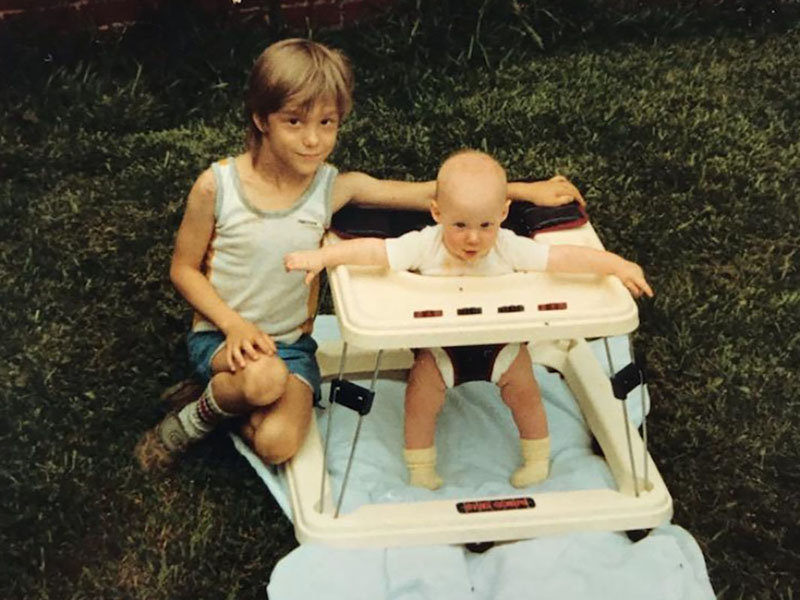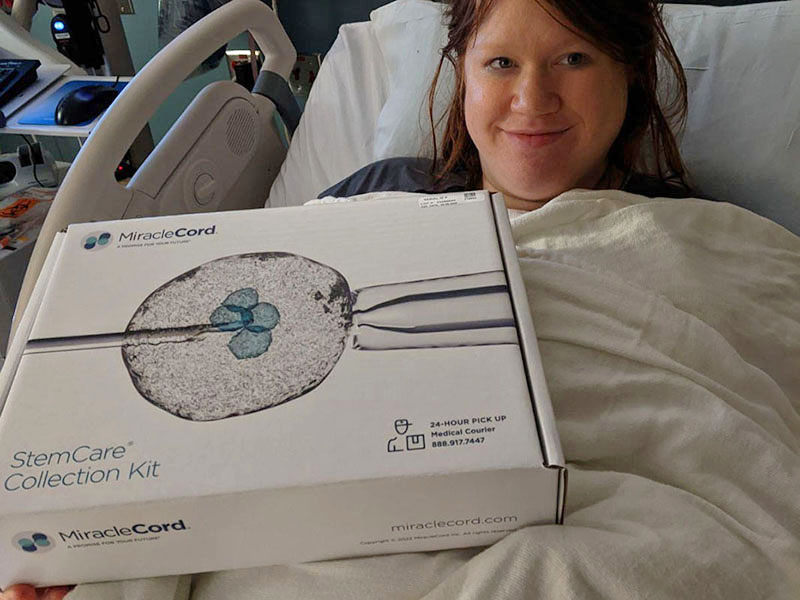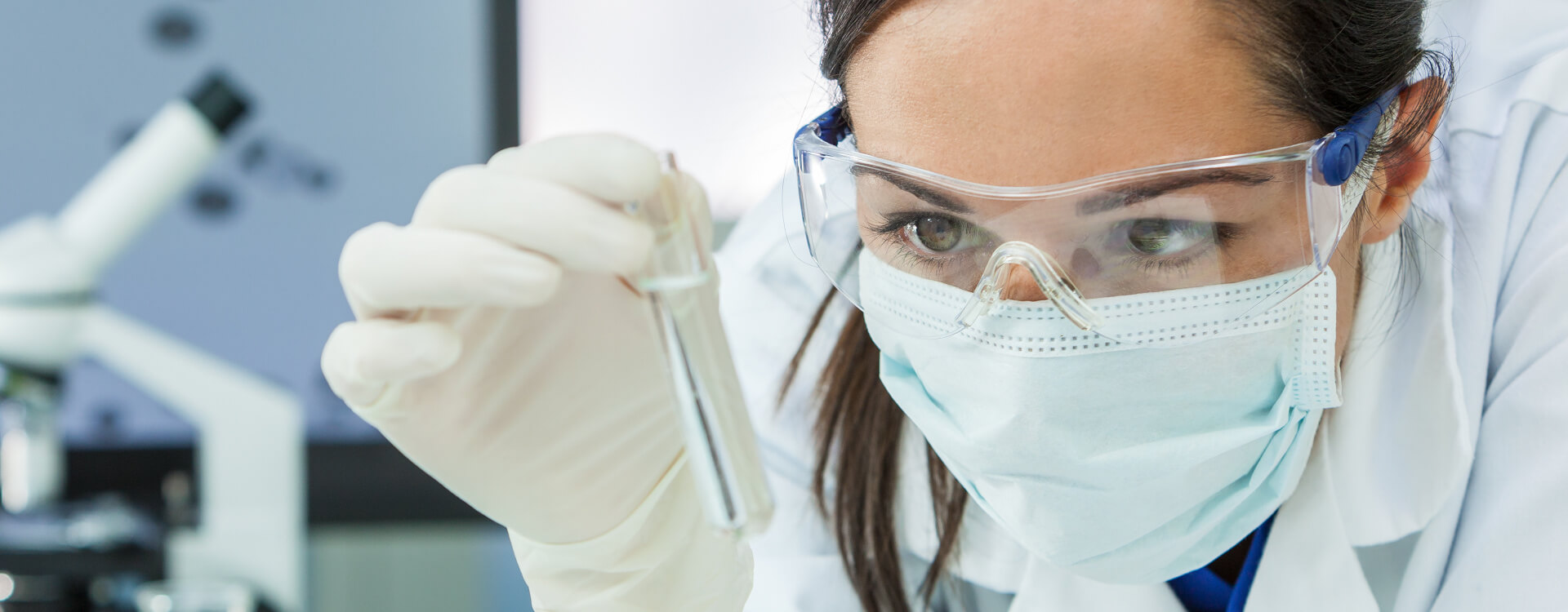The first successful cord blood transplant took place in 1988 and saved Matthew Farrow’s life. This changed how the world viewed umbilical cord blood, formerly considered medical waste, now recognized as precious life-saving stem cells. While Matthew has been integral as a voice of cord blood transplant success, there is a less heard voice behind the transplant that took place in France in October of 1988.
Matthew’s baby sister Alison Farrow was the very first cord blood donor. Now Alison has a family of her own, and MiracleCord is honored to have been chosen to save the next generation's cord blood for her family. We are grateful to be able to share her story with you.
Saving my brother's life through cord blood - My Story
Nearly thirty five years ago my brother, Matthew Farrow, received the world's first umbilical cord blood transplant. As the donor, my cord blood was the first to be successfully used in this manner. This moment in medical history not only saved a life, but also had numerous profound effects on my own and the future of others.
What did it feel like when you learned you saved your brother’s life. How/when did you learn about it?
I have been aware of my role in saving my brother's life for as long as I can recall. But I was approximately five or six years old before I really began to comprehend any of it. Being a cord blood donor for my brother is an integral part of my identity and has shaped who I am.
My brother's illness and transplant have always played a significant role in my life. I can remember, even from a very young age, that our lives seemed to revolve around trips to the hospital and doctor's appointments. My memories include going to Duke University quite a few times. I remember observing blood draws and treatments. I thought about how scary that was, and although I was very young and couldn't quite grasp the seriousness of the situation, I knew then that it was all something much bigger than myself. Kids are more observant than I think people give them credit for.
We are a very spiritual family, and my parents often discussed how they had prayed that I would be a match. Since it was something that had never been successfully done before, it was a complete leap of faith for my family. My mother told me from the very beginning that the reason I was born was to try to save my brother. A cord blood transplant, if successful, would answer all of their prayers. I was always content with the circumstances surrounding my birth. It became a part of my identity and my sense of purpose in life.
We had scrapbooks and photos of the events. I would go through these albums constantly. I remember learning how they sequenced our DNA before I even knew what DNA was. It was all very fascinating to me. I did not do anything, of course; I just happened to be born. But I remember feeling really proud of myself. It still felt like I had played a major part in something important.
Like the photo albums, I would watch home-videos of our time in France, which is where the cord blood transplant took place on October 6, 1988. My dad carried around this giant VHS recorder through the streets of Paris. It was quite the culture shock for my family, especially coming from a little town in North Carolina. My parents knew it was a time of uncertainty, so they set out to record everything. For that, I was grateful. Those videos offered me a glimpse of what my family went through at that time. When I watched the videos at a young age, I didn’t quite grasp how my brother, a five year old, experienced so much at such a young age. It wasn’t until I was much older and had children of my own, that I realized how scary that must have been for our parents.
Growing up, most people would never even know that my brother was ever sick or that he and I had played a role in something medically groundbreaking. It came up occasionally, but most people didn’t have a clue. His recovery was nothing short of a miracle. His blood and immune system were healthy. As time went on, his checkups became less and less frequent, and the fact that he had this terminal disease and that the treatment that saved him had used my cord blood became just another background detail in our lives. The fact that he could lead a relatively normal life shows just how well the treatment had worked.
How is your relationship different from other siblings? Do you think you’re closer as a result?
My role as a donor in the first cord blood transplant altered the course of our lives and strengthened our bond as brother and sister in lasting ways. Every year, we recognize the date of my brother’s transplant. It was the day his life was saved, and I am happy that I got to be a part of that.
I feel that facing challenges and difficulties in general makes a sibling bond much stronger. When you have someone in the family with an illness, it is difficult for everyone. My brother’s transplant affected all of the members of my family, even many years later. Through that sort of shared experience, we have grown a connection that seems to get stronger the older we get. Or perhaps part of that is due to the fact that as we get older, there is less fighting and sibling rivalry to contend with. Either way, the bond is there.
The stem cells of my cord blood made his body replace his blood with my own. Our blood types are the same. Our very blood is the same, down to the DNA. That is so crazy to me, and I think about it all the time. So in a sense, we have a literal blood bond with one another. My blood will forever be his blood — literally.

Why is cord blood banking important to you, and why do you want to do it for your children?
When I became a parent, I was not prepared for the overwhelming sense of worry a person can have for their children. One of the most important things I think we can do in our lifetime is ensure a better future for our kids. I want to be sure that I have done everything I can to make sure my children will grow up happy and healthy. I want to help them live the fullest life possible. The last thing I would want to experience is the regret of wishing that I had done more. That gnawing, nagging question of ‘what if?’
Having seen firsthand how cord blood can save a life, it would be impossible for me to ignore the value it can provide. It gives me peace of mind to know I have something in place that could save a life or treat an otherwise untreatable illness. It's truly amazing how the possibilities may impact our future. A disease could have a possible treatment in 10 or 20 years, and all I had to do was save my child's cord blood from being thrown in the trash. For me, it is a no-brainer. I consider it a safeguard for my family. There are so many diseases that it just makes sense to prepare for that possibility.
I am no doctor or scientist, but I know that thirty five years ago, the realm of cord blood science was much smaller. But now, technology has grown so much in so many areas. And who knows what cord blood could provide for us in the future? What is taking place in the field of cord blood is very exciting, and what is also important is that cord blood storage is now within everyone's reach.
Why bank with MiracleCord?
While we were researching options, we discovered that MiracleCord’s lab is one of the best labs in the country. We were looking for a company that we could have faith in, not just for the security of the initial storage but also for the many years that would follow. Because this is not something that we take lightly, we were very happy to find a place that seemed to care not only about the scientific aspect of cord blood banking but also about the people who were putting their trust in them.
Being a cord blood donor has taught me the significance of promoting awareness and education regarding the use and storage of cord blood. I hope to advocate for cord blood and cord tissue banking by sharing my personal experience and encouraging others to consider cord blood banking for their children. Most importantly, my family's journey has allowed me to be grateful for the blessings I have been given in life. It is a constant reminder that something tiny can have an enormous impact. Perhaps it could even save a life.

Saving Your Baby’s Cord Blood Stem Cells
Some illnesses show up at birth, others may arise years later. Either way, saving your newborn’s stem cells can help prepare your family should the need for a stem cell transplant arise. And, since stem cell therapies are on the cutting edge of medical treatment, having your own genetic match available can be lifesaving.
For questions on cord blood and cord tissue stem cell banking call 888.743.2673 or request our Free Cord Blood Banking Guide today.
DISCLAIMER: THE INFORMATION ON THIS WEBSITE IS NOT INTENDED TO BE USED AS MEDICAL ADVICE.The materials and information contained on the MiracleCord website is provided for educational and informational purposes only, and is not intended to, and does not constitute, medical or other health advice or diagnosis, and should not be used as such. You should not use this information to diagnose or treat a health problem or disease. If you are seeking personal medical advice, you should consult with a licensed physician. Always consult with a qualified health care provider regarding a medical condition.






